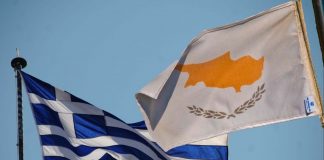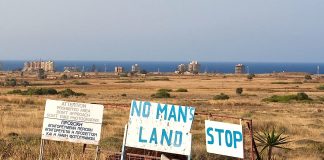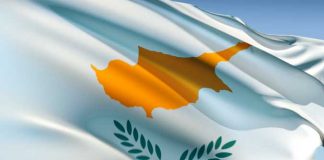Cyprus
‘More than 800,000 songbirds illegally killed’ on British military base in...
Robins and blackcaps are among the birds being trapped for food
By Emily Beament
16 March 2017
More than 800,000 songbirds were illegally killed on a British...
The Divisions of Cyprus, by Perry Anderson
24 April 2008
Enlargement, widely regarded as the greatest single achievement of the European Union since the end of the Cold War, and occasion...
Antonio Guterres – an instrument of Neocons
By Dimitris Konstantakopoulos
First Published: 23/7/2017
The new General Secretary of the UN does nothing to stop the wars that are destroying Libya, Syria, Yemen or...
Cyprus should not be an Israeli military training ground
June 15th, 2017
Cyprus Opinion
AKEL spoke for many people when it expressed its disapproval of the joint military exercise between the National Guard and the...
The Crimes of Henry Kissinger
Christopher Hitchens details his research on the war crimes of Henry Kissinger.
Hitchens details Kissinger's involvement in assassination, torture and mass murder in in Vietnam,...
Greece and Cyprus as geopolitical fodder
By William Mallinson
‘A truly independent Greece is an absurdity. Greece can either be English or Russian, and since it cannot be Russian, it is...
Antonio Guterres – an instrument of Neocons
By Dimitris Konstantakopoulos
The new General Secretary of the UN does nothing to stop the wars that are destroying Libya, Syria, Yemen or those threatening...
No to the new Crime! Mikis Theodorakis on Cyprus, Russia and...
No to the new Crime! Mikis Theodorakis on Cyprus, Russia and the upcoming War against Iran
In an article entitled “No to the new Crime!”,...
Saga of an unthinking Eurotank (The strange Habits of the European...
By William Mallinson*
Introduction
With Britain, one of Cyprus’ so-called guarantor powers, leaving the EU, the neurotic speed and desperation to try to force yet another...
Opération détruire les peuples …ici grec
Par Bruno Drewski
A côté de l'opération détruire les Syriens, les Palestiniens, les Libanais, les Irakiens, les Yéménites, les Iraniens, les Ukrainiens, les Russes, les...








